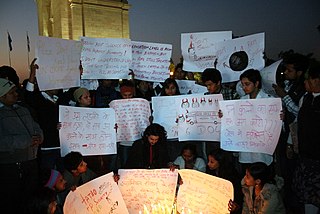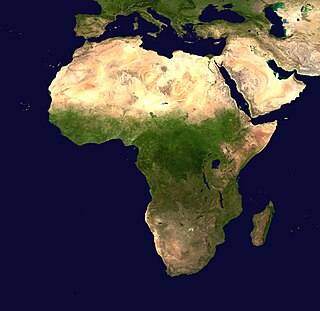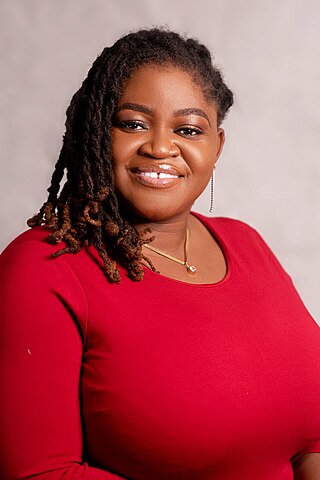Related Research Articles
Sex-positive feminism, also known as pro-sex feminism, sex-radical feminism, or sexually liberal feminism, is a feminist movement centering on the idea that sexual freedom is an essential component of women's freedom. They oppose legal or social efforts to control sexual activities between consenting adults, whether they are initiated by the government, other feminists, opponents of feminism, or any other institution. They embrace sexual minority groups, endorsing the value of coalition-building with marginalized groups. Sex-positive feminism is connected with the sex-positive movement. Sex-positive feminism brings together anti-censorship activists, LGBT activists, feminist scholars, producers of pornography and erotica, among others. Sex-positive feminists believe that prostitution can be a positive experience if workers are treated with respect, and agree that sex work should not be criminalized.

Third-wave feminism is a feminist movement that began in the early 1990s, prominent in the decades prior to the fourth wave. Grounded in the civil-rights advances of the second wave, Gen X third-wave feminists born in the 1960s and 1970s embraced diversity and individualism in women, and sought to redefine what it meant to be a feminist. The third wave saw the emergence of new feminist currents and theories, such as intersectionality, sex positivity, vegetarian ecofeminism, transfeminism, and postmodern feminism. According to feminist scholar Elizabeth Evans, the "confusion surrounding what constitutes third-wave feminism is in some respects its defining feature."

Islamic feminism is a form of feminism concerned with the role of women in Islam. It aims for the full equality of all Muslims, regardless of gender, in public and private life. Islamic feminists advocate for women's rights, gender equality, and social justice grounded in an Islamic framework. Although rooted in Islam, the movement's pioneers have also utilized secular, Western, or otherwise non-Muslim feminist discourses, and have recognized the role of Islamic feminism as part of an integrated global feminist movement.
Black feminism is a branch of feminism that focuses on the African-American woman's experiences and recognizes the intersectionality of racism and sexism. Black feminism philosophy centers on the idea that "Black women are inherently valuable, that liberation is a necessity not as an adjunct to somebody else's but because of our need as human persons for autonomy."
Lipstick feminism is a variety of feminism that seeks to embrace traditional concepts of femininity, including the sexual power of women, alongside traditional feminist ideas. The concept emerged within the third-wave as a response to ideals created by previous movements, where women felt that they could not both be feminine and a feminist.

Feminism in India is a set of movements aimed at defining, establishing, and defending equal political, economic, and social rights and opportunities for women in India. It is the pursuit of women's rights within the society of India. Like their feminist counterparts all over the world, feminists in India seek gender equality: the right to work for equality in wages, the right to equal access to health and education, and equal political rights. Indian feminists also have fought against culture-specific issues within India's patriarchal society, such as inheritance laws.

African feminism includes theories and movements which specifically address the experiences and needs of continental African women. From a western perspective, these theories and movements fall under the umbrella label of Feminism, but this categorization is misleading for many branches of African "feminism". African women have been engaged in gender struggle since long before the existence of the western-inspired label "African feminism," and this history is often neglected. Despite this caveat, this page will use the term feminism with regard to African theories and movements in order to fit into a relevant network of Wikipedia pages on global feminism. Because Africa is not a monolith, no single feminist theory or movement reflects the entire range of experiences African women have. African feminist theories are sometimes aligned, in dialogue, or in conflict with Black Feminism or African womanism. This page covers general principles of African feminism, several distinct theories, and a few examples of feminist movements and theories in various African countries.

Women in Nigeria are a diverse group of individuals who have a wide range of experiences and backgrounds.We are a diverse community of individuals, each bringing a wealth of unique experiences and backgrounds that shape who we are. They are mothers, daughters, sisters, wives, entrepreneurs, professionals, and activists. Women in Nigeria face numerous challenges, including gender inequality, poverty, and a lack of access to education and healthcare. Despite these challenges, Nigerian women are making strides in all areas of life and are becoming increasingly empowered to take control of their lives and their futures.
Native American feminism or Native feminism is, at its root, understanding how gender plays an important role in indigenous communities both historically and in modern-day. As well, Native American feminism deconstructs the racial and broader stereotypes of indigenous peoples, gender, sexuality, while also focusing on decolonization and breaking down the patriarchy and pro-capitalist ideology. As a branch of the broader Indigenous feminism, it similarly prioritizes decolonization, indigenous sovereignty, and the empowerment of indigenous women and girls in the context of Native American and First Nations cultural values and priorities, rather than white, mainstream ones. A central and urgent issue for Native feminists is the Missing and murdered Indigenous women crisis.
Sharon Lamb is an American professor in the Department of Counseling and School Psychology at the University of Massachusetts Boston's, College of Education and Human Development, and a fellow of the American Psychological Association (APA). She also sits on the editorial board of the academic journals Feminism & Psychology, and Sexualization, Media, and Society.
Feminist activism in hip hop is a feminist movement based by hip hop artists. The activism movement involves doing work in graffiti, break dancing, and hip hop music. Hip hop has a history of being a genre that sexually objectifies and disrespects women ranging from the usage of video vixens to explicit rap lyrics. Within the subcultures of graffiti and breakdancing, sexism is more evident through the lack of representation of women participants. In a genre notorious for its sexualization of women, feminist groups and individual artists who identify as feminists have sought to change the perception and commodification of women in hip hop. This is also rooted in cultural implications of misogyny in rap music.
Feminism in Sweden is a significant social and political influence within Swedish society. Swedish political parties across the political spectrum commit to gender-based policies in their public political manifestos. The Swedish government assesses all policy according to the tenets of gender mainstreaming. Women in Sweden are 45% of the political representatives in the Swedish Parliament. Women make up 43% of representatives in local legislatures as of 2014. In addition, in 2014, newly sworn in Foreign Minister Margot Wallström announced a feminist foreign policy.
Gender inequality refers to unequal treatment or perceptions of individuals wholly or partly due to their gender or sex. It arises from differences in socially constructed gender roles. Gender inequality in Nigeria is influenced by different cultures and beliefs. In most parts of Nigeria, women are considered subordinate to their male counterparts, especially in Northern Nigeria as well as in other sectors including the Nigeria music industry, politics, and education sector. It is generally believed that women are best suited as home keepers.
Feminism in Pakistan refers to the set of movements which aim to define, establish, and defend the rights of women in Pakistan.This may involve the pursuit of equal political, economic, and social rights, alongside equal opportunity. These movements have historically been shaped in response to national and global reconfiguration of power, including colonialism, nationalism, Islamization, dictatorship, democracy, and the War on Terror. The relationship between the women's movement and the Pakistani state has undergone significant shifts from mutual accommodation to confrontation and conflict.
Joy Isi Bewaji is a Nigerian essayist, screenwriter, playwright, new media entrepreneur and social affairs activist. Her writings and plays have been centred on cultural inappropriateness and religious anomalies. She identifies as a feminist, her viewpoint on public issues have made her be described as a "modern-day fearless feminist" by the media.

Feminism in Indonesia refers to the long history of discourse for gender equality to bring about positive social change in Indonesia. The issues women in Indonesia currently are facing include gender violence, underage marriages, and lack of representation in the political system. Feminism and the women's right movement began during colonial Indonesia under Dutch rule and were spearheaded by the national heroine Kartini, a Javanese noblewoman who advocated for the education of all women and girls regardless of social status. In the early 19th century, women's rights organizations and movements were allowed to developed under Budi Utomo, the first Indonesian Nationalist organization. Modern day Indonesian feminism include and are influenced by both fundamentalist and progressive Islamic women's organizations.
Feminist foreign policy, or feminist diplomacy, is a strategy integrated into the policies and practices of a state to promote gender equality, and to help improve women's access to resources, basic human rights, and political participation. It can often be bucketed into three categories: rights, resources, and representation. The concept was first coined and integrated into governmental policy by Margot Wallström, former Swedish Foreign Affairs Minister. The objectives of feminist foreign policy include :

Osasu Edobor is a Nigerian gender advocate and founder of Think Help Restore (THR) Media and the Safe Space Initiative. She is a licensed mental health first-aider, peer educator trainer, and counselor. As a campaigner for gender inclusion, Osasu created the HERFessions app, which provides support for survivors of sexual abuse. She is a 2018 Mandela Washington Fellow alumna and a Young African Leaders Initiative member.
Feminism in Zambia entails with the organized efforts to improve the rights of the girls and women in Zambia. However, it was in the 1960s and 1970s that modern feminist movement started gaining force in Zambia through the establishment of groups such as the Zambia Women's League and other related thematically organized movements in different spheres, that is, women's ministries under ministries dealing with labor issues.
Feminism in Kenya concerns the organized efforts to improve the rights of the girls and women of Kenya. The modern feminist movement, which took off in the early 1960s and also in the 1970s, gained impetus through the establishment of various organisations such as Maendeleo Ya Wanawake and Kenya Women’s Political Caucus.
References
- ↑ SayItForward.org (2022-12-12). "Olaoluwa Abagun, LLB. BL. MA., Nigeria". Girls' Globe. Retrieved 2024-01-15.
- ↑ "" I am an unapologetic feminist" Olaoluwa Abagun". The Guardian Nigeria News - Nigeria and World News. 2016-08-27. Retrieved 2024-01-15.
- ↑ "Meet our first Action Learning Core Group". YIELD Hub. 2022-07-01. Retrieved 2024-01-15.
- 1 2 "Ms Olaoluwa Abagun". Wise Initiative. Retrieved 2 March 2019.
- ↑ "Olaoluwa Abagun". Women Deliver. Retrieved 4 January 2019.
- 1 2 3 4 5 Kumolu, Charles (October 18, 2017). "ABAGUN: Fashola's whispers added more springs to my legs". Vanguard (Nigeria) . Archived from the original on November 8, 2017. Retrieved November 9, 2017.
- 1 2 3 Kalejaiye, Esther (August 27, 2016). "I am an unapologetic feminist" Olaoluwa Abagun". The Guardian. Retrieved November 9, 2017.
- ↑ "Olaoluwa Abagun - Safe Kicks Initiative: Adolescent Girls Against Sexual Violence". Women Deliver. Retrieved November 9, 2017.
- ↑ Attia, Karin (March 23, 2016). "Who runs the world? Girls! Not at the UN CSW". Open Democracy. Retrieved November 9, 2017.
- ↑ Sanders, Linley (15 March 2018). "These Young Women Prove #MeToo Isn't Just Happening in the U.S." Teen Vogue. Retrieved 27 December 2020.
- ↑ "How Olaoluwa Abagun Is Raising 250 Adolescent Girls To Help Prevent Sexual Violence In Alimosho". women.ng. July 21, 2016. Archived from the original on October 27, 2016. Retrieved November 9, 2017.
- ↑ "Six Nigerians tapped to debate global issues in UK Parliament". Premium Times. July 21, 2017. Retrieved November 9, 2017.
- ↑ "Female leaders fear women being sidelined in Nigeria's 2019 elections". Reuters. Retrieved 2018-02-01.
- ↑ "Empowering religious leaders to help prevent sexual violence in Nigeria". Commonwealth Scholarship Commission in the UK. Retrieved 2024-01-15.
- ↑ "Meet our first Action Learning Core Group". YIELD Hub. 2022-07-01. Retrieved 2024-01-15.